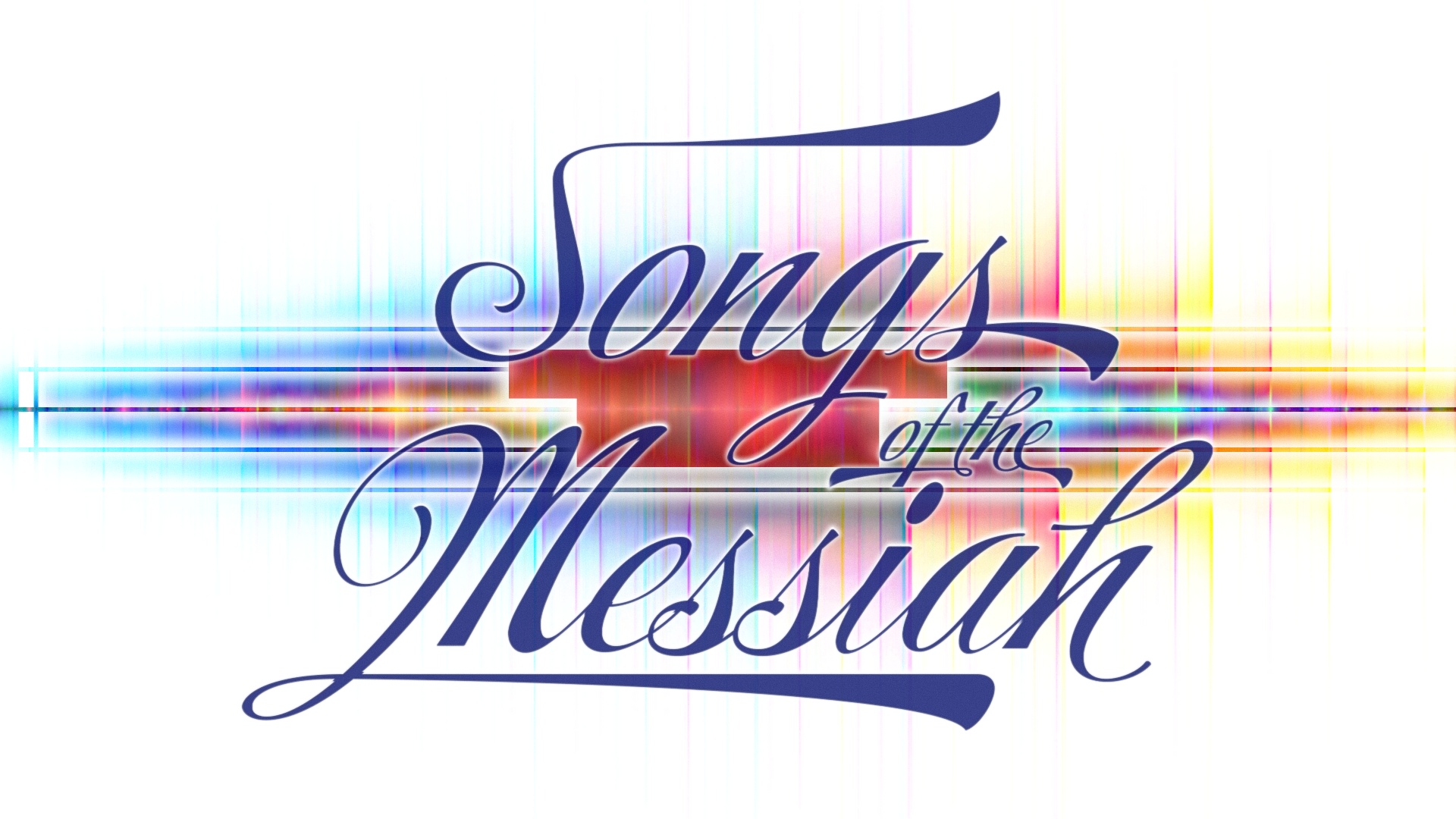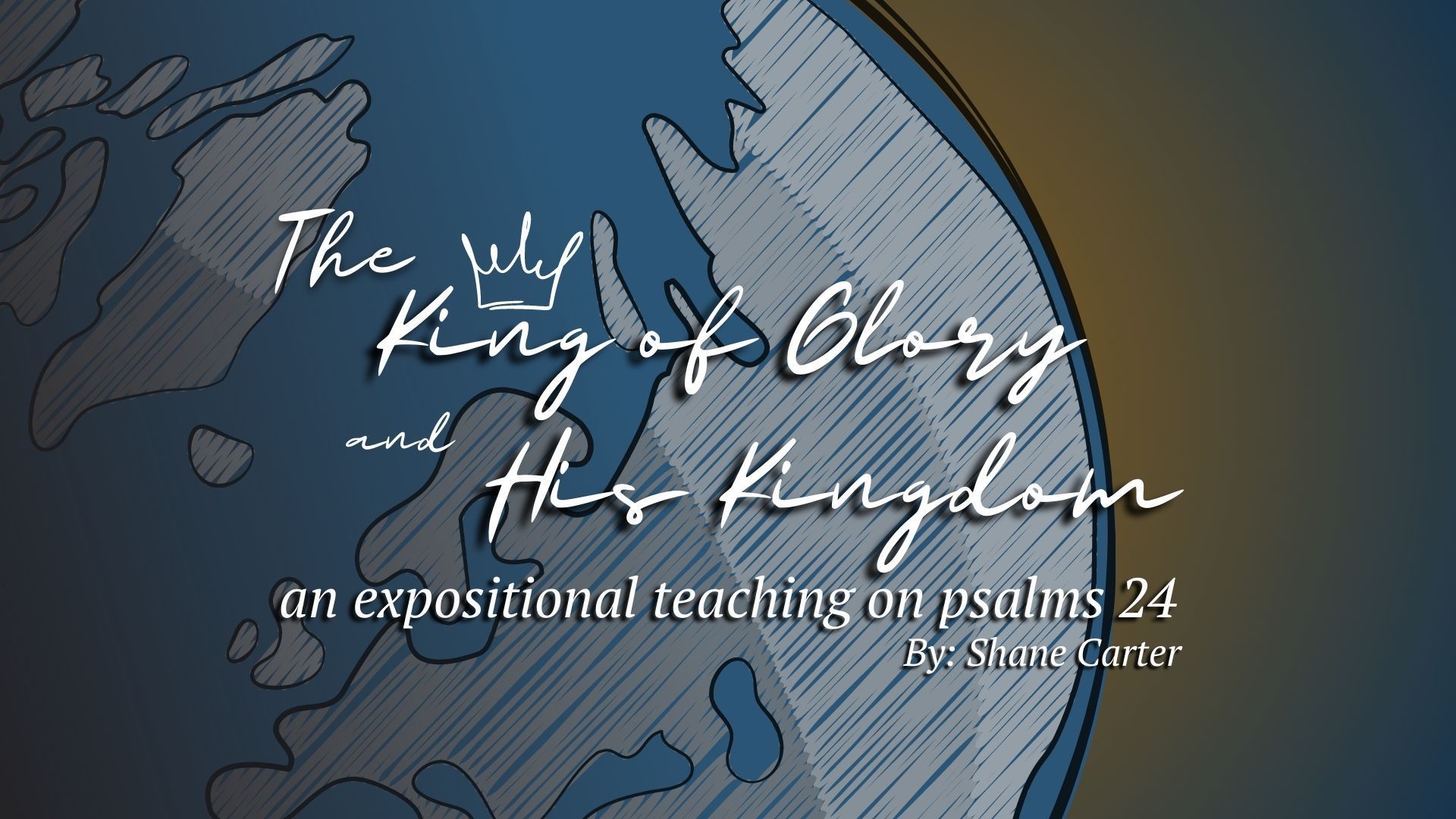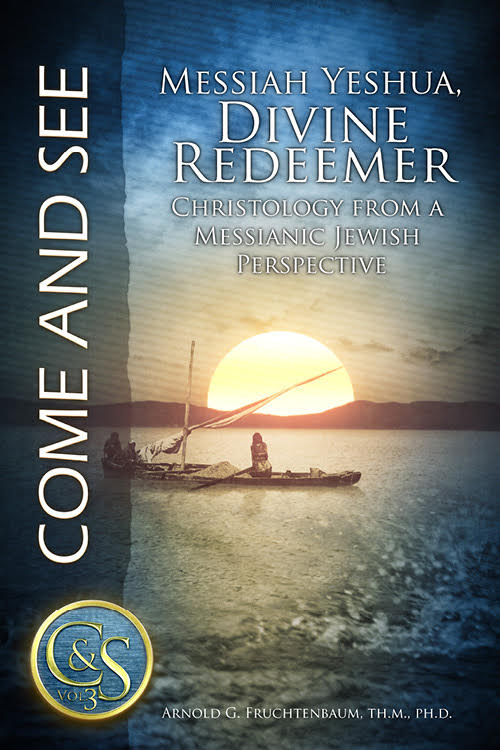Sunday Service 9am & 11am
Wednesday Service 7pm
(210) 920-6502
551 E Nakoma St.
San Antonio, TX 78216
Join a small group to study this sermon with like-minded believers.
Psalm 2:1-12
Video
Audio
Manuscript
Let’s open our Bibles, please, and turn together to the Book of Psalms. Today we are going to look at the quintessential messianic psalm in the Psalter, Psalm 2.
1 Why do the nations rage and the peoples plot in vain? 2 The kings of the earth set themselves, and the rulers take counsel together, against the LORD and against his Anointed, saying, 3 “Let us burst their bonds apart and cast away their cords from us.” 4 He who sits in the heavens laughs; the Lord holds them in derision. 5 Then he will speak to them in his wrath, and terrify them in his fury, saying, 6 “As for me, I have set my King on Zion, my holy hill.” 7 I will tell of the decree: The LORD said to me, “You are my Son; today I have begotten you. 8 Ask of me, and I will make the nations your heritage, and the ends of the earth your possession. 9 You shall break them with a rod of iron and dash them in pieces like a potter’s vessel.” 10 Now therefore, O kings, be wise; be warned, O rulers of the earth. 11 Serve the LORD with fear, and rejoice with trembling. 12 Kiss the Son, lest he be angry, and you perish in the way, for his wrath is quickly kindled. Blessed are all who take refuge in him.
When I was a kid, I loved that song by Rich Mullins called “While the Nations Rage.” But I didn’t really understand it.
Why do the nations rage?
Why do they plot and scheme?
Their bullets can't stop the prayers we pray
In the name of the Prince of Peace
It wasn’t until later in life that I realized that Rich was singing about Psalm 2. And in that song, he was linking the prophecy of Psalm 2 to Jesus… which coincidently is exactly what the NT authors do (see Acts 4:25-28,13:33; Heb 1:5; Rev 2:27; 6:15-17; 12:5; 19:15).
And there are essentially two horizons to this Psalm. There is the immediate context of an author, a king of Israel, who wrote about his son as the anointed one, probably King David writing about his son, Solomon. Even though David isn’t mentioned as the author here, we know it was him, because the early church said as much in Acts 4 (4:24-26). Also in 2 Samuel 7, God had promised King David that he would have an eternal son. And God said to David, “your house and your kingdom shall be made sure forever before me. Your throne shall be established forever” (7:16). And so, possibly, David wrote Psalm 2 as a word of encouragement for Solomon and all his future offspring. So we can observe this Psalm on that horizon seeing in it the original context of David’s sons and their battling against the surrounding nations.
But also, we observe this Psalm on a second horizon, through the lens of the NT, where the greater-than-David “Son of David” came and conquered through his death and resurrection. And that NT “Son of David” promises to return to rule and reign over this world forever. Who is the NT “Son of David”? Jesus!
And the clearest connection between Psalm 2 and the NT revelation of Jesus is the reference to “his Anointed” in verse 2. Does everyone see “his Anointed” in verse 2? That’s מָשִׁיחַ in Hebrew, the Messiah. Who’s the מָשִׁיחַ, the Messiah, the Christ according to the NT? Jesus, right?
So, let’s tackle this Psalm verse-by-verse. And before we get to verse 1, I think it would be helpful to show you how this psalm is structured. “This poem is well-crafted, having four stanzas of three verses each.”
Essentially there are four movements in this Psalm with four different speakers. I’m indebted to Sinclair Ferguson for helping me see this. And Ferguson invites us to imagine reading this Psalm like an opera, where four different speakers/singers are stating their case to the audience. The four different speakers include: 1) the Nations (verses 1-3), 2) the Lord (verses 4-6), 3) The Divine Son or the Anointed King (verses 7-9), and then finally 4) the Psalmist (verses 10-12), King David, concludes the Psalm with a few choice pieces of wisdom. He closes this Psalm by giving us some advice. And I hope, for the sake of your soul, that you will heed David’s advice.
-----------------------------------------------------------------------------------------
So, let’s look at this psalm according to these four movements and evaluate what the different speakers are saying. First, we hear…
1. The Rebellion of the Nations (2:1-3)
The psalmist asks the rhetorical question:
1 Why do the nations rage and the peoples plot in vain?
“Plot” here is the Hebrew הָגָה meaning “meditate” or “ponder” or even “mutter.” This is the same word as Psalm 1:2: “but his delight is in the law of the LORD, and on his law he meditates [הָגָה] day and night.”
2 The kings of the earth set themselves, and the rulers take counsel together, against the LORD and against his Anointed, saying,
3 “Let us burst their bonds apart and cast away their cords from us.”
Do you hear the voice of the Nations in verse 3? “Let us burst their bonds apart.” The bonds of the LORD and his Anointed! “[Let us] cast away their cords from us!” “We don’t want the God of the Israelites, and we don’t want his stupid King!” That’s what they are saying.
And the immediate context of Psalm 2 must be the nations that surrounded Israel: The Philistines, the Arameans, the Moabites, the Ammonites, the Edomites, and the Phoenicians. Those subjects of David’s Kingdom were always raging against Israel. They were always plotting to overthrow his Kingdom. And you may even add to that mix the bigger nations of Assyria, Babylon, Egypt, and others. They raged against Israel and her God too.
And if you’ve ever seen Israel on a map, you know why this is the case. Israel is a kind of land-bridge between different parts of the world. It’s an axis point between Asia, Africa, and Europe. So whoever controls Israel controls that land-bridge. And that’s why there was constant enmity between Israel and her neighbors. There was constant warfare between Israel and the peoples that surrounded her. That’s still the case today, by the way.
And the Psalmist says that “the kings of the earth set themselves, and the rulers take counsel together, against the LORD and against his Anointed.” So this enmity that the nations had towards Israel, it wasn’t just towards the king, the Anointed of Israel. It was ultimately against the God of the Israelites, Yahweh. They counseled together to throw off the yoke of the true God of the Universe. They say…
3 “Let us burst their bonds apart and cast away their cords from us.”
They refuse to submit to Yahweh. They refuse to come under the protection of the favored nation, Israel, and their king. To bless Israel is to be blessed. To curse Israel is to be cursed. That’s the essence of the Abrahamic Covenant in Genesis where God says, “I will bless those who bless you, and him who dishonors you I will curse, and in you all the families of the earth shall be blessed” (Gen 12:3).
Now that’s the first horizon that I spoke of earlier, the immediate context of this OT text. But this is true of the other horizon too. Rage against God is not limited to Israel’s surrounding nations in the OT. In the NT era, we still see nations that rage against Yahweh and his Anointed One, Jesus.
I’ll give you a perfect example of that. There’s been a lot of talk about North Korea these last few years. Maybe you’ve heard about that? But what you probably didn’t hear is that North Korea has been deemed the #1 persecutor of Christians in the world. According to the Christian watchdog organization, Open Doors, North Korea has topped the list of persecuting countries for over 16 years. I heard recently that in some cases Christian parents have to hide their Christian identity from their own children until their children are old enough to understand the ramifications of their faith in Christ, because if word got out about their faith in the schools or in the community, their lives would immediately be in danger.
And why does North Korea persecute Christians so vigilantly? Because Kim Jong-un is viewed as the deified leader of the country, and he is unwilling to tolerate a competing King or Ruler. He’s essentially the King Herod of Twenty-First Century Korea.
2 The kings of the earth set themselves, and the rulers take counsel together, against the LORD and against his Anointed.
In the book of Acts, this passage was used to describe Herod and Pilate and the others who took their stand against Jesus (4:25-28). Herod and Pilate were the archetypal kings and rulers of Psalm 2:2. But I could give you some additional modern-day examples of this. I could also give you some historical examples of this throughout the centuries.
In his commentary on Psalm 2, Bruce Waltke writes: “The Roman emperor Diocletian set up in Spain two large pillars. One reads: “Diocletian Jovian Maximum Hercules Caesares Augusti, for having extended the Roman Empire in the east and west, and having extinguished the name of Christian, who brought the Republic to ruin.” The second [pillar] reads: “Diocletian Jovian Maximum Hercules Caesares Augusti … for having everywhere abolished the superstition of Christ, for having extended the worship of the gods.’” That’s a third century AD Caesar named Diocletian (284-305 AD). He’s got a palace dedicated to him in Croatia. I’ve been there.
I recently read a book called 10 Books That Screwed Up the World. Great book! And one of the things the author of that book, Benjamin Wiker, points out is that the consistent thread in the works of Nietzsche, Freud, Darwin, Marx, Hitler, Linen, and even Machiavelli is this desire to throw off the shackles of Christianity and pursue some new post-Christian ethic. And their ideas are often presented as the pathway to a post-Christian utopia, but they end up AS anything but. The best example of that is Marx and Lenin. The Communist Manifesto, written by Marx and applied by Lenin, gave us one of the most oppressive regimes in human history and has resulted in approximately 100 million deaths in the Twentieth Century.
And that same desire to throw off the shackles of Christianity was present in Darwin and Freud and Hitler. That same desire is present in our modern-day world full of sexual revolutions and animosity towards God. And let’s face it, that rebellion is even found in our own hearts. Because we are all the sons and daughters of Adam and Eve. They were the ones who defied God and wanted to become like God in the Garden of Eden, throwing off the shackles of submission to God. And where did that get us?
3 “Let us burst their bonds apart and cast away their cords from us.”
-----------------------------------------------------------------------------------------
So, mankind is perpetually rebellious towards the God of the Universe and his מָשִׁיחַ. What do we do about that? What is the remedy for that rebellious spirit that’s found in all of us? Well we’ll get to that in a moment, but first the Psalmist gives us God’s response to Man’s Rebellion. The second speaker in this Psalm is the Lord, and he’s got quite a message for us in verses 4-6.
Write this down in your notes as #2:
2. The Reaction of the Lord (2:4-6)
Now how shocked would you be if verse 4 read like this: “The kings of the earth take counsel together against the LORD… and the LORD was shaking in his boots?” Would that be a little bit surprising to you? Maybe even alarming? “The kings of the earth take counsel together against the LORD… and the LORD started getting really nervous. And so, he appeased those powerful nations… like Neville Chamberlain appeased Hitler in WWII!” Is that what your Bible says? NO! Look at verse 4.
4 He who sits in the heavens laughs; the Lord holds them in derision.
The Lord laughs at them. The Lord laughs at rebellious, rage-intoxicated humans. By the way, “Lord” there is not the capital L-O-R-D, Yahweh, like we see in verse 2. This is the Hebrew word אֲדֹנָי, which means sovereign master or ruler. The sovereign ruler of the Universe, אֲדֹנָי, laughs at those who oppose him.
And that Hebrew word “laughs” here is שָׂחַק, and it’s related to the word Isaac or יִצְחָק (“he laughs”) in Hebrew. If you remember Sarah laughed when God told Abraham that they would have a baby. She laughed because it was utterly ridiculous, because they were so old. Well God has a sense of humor. And so, God told them to call the baby “Isaac” meaning “he laughs.”
Well here, the idea that these nations rebel against God and want to “burst apart his bonds” and “cast away his cords” is utterly laughable to the Lord. It’s a joke to him. “He holds them in [divine] derision,” meaning he ridicules them or scoffs at them. It’s a joke to him.
Keep that in mind when Kim Jong-un calls himself a god and requires his people to worship him. The LORD laughs at that. Keep that in mind when Friedrich Nietzsche says, “God is dead, and we have killed him!” The LORD laughs at that. The LORD laughs when John Lennon (not Vladimir Lenin but John Lennon, the Beatles) says, “Christianity will go. It will vanish and shrink. I needn’t argue about that; I’m right and will be proved right.” Can you hear the LORD laughing even now about that?
Here’s how Rich Mullins puts it in the song I mentioned earlier:
The Lord in Heaven laughs
He knows what is to come
While all the chiefs of state plan their big attacks
Against His anointed One
The Church of God she will not bend her knees
To the gods of this world though they promise her peace
She stands her ground
Stands firm on the Rock
Watch their walls tumble down when she lives out His love
Now, according to verse 5, that’s not all God is doing. The Lord is laughing at the ridiculousness of these false kings, but he is also storing up his wrath. Look at verse 5 with me.
5 Then he will speak to them in his wrath,
Uh-oh! The word for “wrath” here is the Hebrew word for “nostril” (אַף). And in fact, the famous statement, “The LORD is slow to anger and abounding in lovingkindness” (e.g. Ex 34:6-7; Ps 86:15; Jon 4:2) is literally “The LORD is ‘long of nostril…’” (אָרֵךְ אַף).
But even though God is slow to anger, he is not devoid of anger as we see here. God speaks to rebels here “in his wrath,” literally “in his nostril.” You can imagine here an anthropomorphism, as God flares his nostrils at these rebels.
5 Then he will speak to them in his wrath, and terrify them in his fury, saying, 6 “As for me, I have set my King on Zion, my holy hill.”
Laughter and anger! That’s how God responds to the rebellious insolence of mankind. Laughter and then, anger.
Now just in case you didn’t know, “Zion” in verse 6, is a reference to Jerusalem. And it’s that ancient place where David set up his kingdom and set up his rule. It’s also the place where the Temple of Yahweh was established, that place where animals were sacrificed, and Yahweh was worshiped. It’s also the place where Jesus was crucified, buried, and resurrected. It’s also the place where Christ will return and set up his earthly kingdom for a thousand years according to the NT book of Revelation (20:1-6). And then a New Zion, a New Jerusalem will come down out of heaven, as the eternal abode of Christ Jesus and his people, a place where we will worship and fellowship with King Jesus forever and ever (Rev 21-22).
6 “As for me, I have set my King on Zion, my holy hill.”
I don’t know how much of that future reality the Psalmist grasped when he penned Psalm 2, but he knew, at least in part, that God would set up an eternal king of Jerusalem that would rule the nations. Remember 2 Samuel 7? God said to David, “your house and your kingdom shall be made sure forever before me. Your throne shall be established forever” (7:16).
-----------------------------------------------------------------------------------------
Now watch what happens next. Take a look at who the next speaker in this Psalm is. The nations have spoken (verses 1-3). The God of the Universe, the Lord, has spoken (verses 4-6). And now we get to hear from the Divine Son of God (verses 7-9).
Write this down as #3 in your notes.
3. The Rule of the Divine Son (2:7-9)
7 I will tell of the decree: The LORD said to me, “You are my Son; today I have begotten you.
The LORD has a Son? Yahweh has a son? How can that be? How does that even make sense? Well I’m not sure it does make sense totally to the OT reader until we get to the NT and hear those beautiful words from John 3:16, “For God so loved the world, that he gave his only Son, that whoever believes in him should not perish but have eternal life. For God did not send his Son into the world to condemn the world, but in order that the world might be saved through him. Whoever believes in him is not condemned, but whoever does not believe is condemned already, because he has not believed in the name of the only Son of God” (3:16-18).
Now this gets a little confusing in verse 8, because we have the Son telling us what Yahweh told him. Okay? So, what’s going on here is this inner-Trinitarian dialogue. And here’s what God tells the Son.
8 Ask of me, and I will make the nations your heritage, and the ends of the earth your possession. 9 You shall break them with a rod of iron and dash them in pieces like a potter’s vessel.”
So, what does God offer the Son? What does the Son, the King, the מָשִׁיחַ, receive as an inheritance? Well, everything! He gets the nations. Not just Israel. Not just Judah. He gets “the ends of the earth.” He gets all of the nations, the גוֹיִם in Hebrew, even to the ends of the earth. Which is ironic, since it was the nations, the גוֹיִם, in verse 1 who were raging against the LORD and his Messiah.
By the way, when I use that term, Messiah (מָשִׁיחַ), I want you to know that there are kingship overtones to that term. The term Messiah or “anointed one” is derived from the idea of anointing with oil, like Samuel did for King David in the OT. And so, Messiahship and Kingship are indelibly bound up together. And so, when we talk about Jesus as our Messiah or the “anointed one”, an inescapable aspect of that is Jesus’s Kingship. He rules in our lives.
You know, we as Americans tend to think very little of Kings and Queens. We mock the British for their monarchy, and we remember how King George tried to suppress the rebellion of the American Colonies in the 1770s. Did you know, though, that we tried to make George Washington the first king of America? Did you know that? He declined. He instead encouraged a monarch-less republic.
In America, we tend to think very little of kings, but we love the idea of a Messiah. Jesus coming to die on the cross for our sins! That’s what Messiahs do. But the term Messiah, “anointed one”, intimates Kingship. And Jesus didn’t die on the cross for your sins so that he could be your buddy or your life-coach or your personal counselor. He’s a King. He rules and reigns over this world.
And you know, even as Americans, I would say this—there’s a longing in our hearts for a real and lasting King and an eternal Kingship. I heard a pastor say this once, and I found it fascinating. He said, “One of the things that’s so incredibly interesting about the literature of the human race is how many ancient legends in all of our cultures kind of go like this: ‘There was a great king who ruled with wisdom and power and justice and compassion all at once. Therefore, when the king was there the land experienced a golden age, and everyone blossomed. We all reached our potential… But something has taken the king away, and everything has deteriorated. Everything has fallen into decay, but we look for the day in which the king will come back.’”
That’s the background to the legend of Robin Hood. Robin Hood is fighting because the good king Richard is gone, and now darkness has descended on the land. Robin Hood is fighting to keep hope alive until the good king comes back.
And that’s the background to the King Arthur stories too. “When Arthur was ruling there was Camelot, but now he is gone. Supposedly on his tombstone it says, ‘Here lies Arthur, rex quondam, rexque futurus,’ meaning, ‘the once and future king.’ Not just the once, but the future king. That’s critical behind all the legends.”
Even as late as the twentieth century, you have stories like this. What’s the most famous story written in the twentieth century? The Lord of the Rings. Right? And what’s the great hope of that story? What’s the final book of that trilogy? The Return of the King. The King is going to return and make everything better. Everything will blossom again.
Now here’s the question. Why? “Why all these legends about kings when the actual record of human kings is absolutely abysmal? The kings in the Bible were horrible. Most of them were evil. If you ever study the lineage of kings and queens in England, they were all horrible too. Why do we keep promoting kingship, when kingship has been such a disaster? Even in places like America where we don’t have kings, we create them. “So we take billionaires, we take athletes, we take media stars, we even take criminals, and we turn them into kings. We crown them. We adore them.” We don’t just have Lebron James. We have “King James.”
Why do we do this? Here’s why. Because there’s a memory trace in us that remembers being ruled by a great and glorious king. And we want that. We long for that. We were built for that. And the Bible speaks to that. And Psalm 2 speaks of this King!
And the great thing about this King, the Psalm 2 King—King Jesus, is that when he comes, he will be the King that we always longed for. He will rule with an iron rod! His rule will be absolute and total.
Incidentally that’s how Jesus is described repeatedly in the book of Revelation, as one who rules with an iron rod. It’s an indication of his strength and his absolute authority. He will be the perfect embodiment of justice and peace. He will be the kind of King that we always longed for. He will be the kind of King that we always hoped for, but we never got. Even King David in Israel fell short of King Jesus.
-----------------------------------------------------------------------------------------
And so, here’s the conclusion of the matter in verse 10. In light of all this… nations rebelling, God laughing, an all-powerful divine Son of God coming to rule and reign forever… In light of all this, what does the Psalmist conclude in verse 10? Well, he gives us some really helpful and practical advice. And it boils down to this, “Kiss the Son.” “Kiss the Son.” “Kiss the Son and you will find refuge.” “Kiss the Son, and you will be blessed.”
Write this down under #4:
4. The Refuge of the Blessed (2:10-12)
10 Now therefore, O kings, be wise; be warned, O rulers of the earth.
Listen up, Kim Jung-un! Pay attention, Donald Trump and Joe Biden! Be warned senators, congressmen, governors, rulers! Listen up, pastors and elders and church leaders!
be warned, O rulers of the earth. 11 Serve the LORD with fear, and rejoice with trembling.
This is good advice for the leaders of our world, but this is good advice for all of us. “Serve the LORD with fear.” He’s the rightful ruler of this world. He’s the one who has the real power. We need to fear him, and we need to rejoice.
You know when I was younger, I thought that fearing God and rejoicing in God were mutually exclusive. I don’t think that anymore. I fear God, and at the same time I rejoice in him! It’s a very Hebrew way of understanding God, because the fear of the LORD is the beginning of wisdom.
We fear God because he’s powerful. We rejoice in him, also, because he’s powerful. We rejoice because that much power in anyone else’s hands would be a terrifying abomination. But we rejoice that it’s in God’s hand, and in the hands of the Messiah.
And then David writes in verse 12:
12 Kiss the Son,
The Hebrew is נָשַׁק בַּר (nā·šǎq bǎr). Or more precisely נַשְּׁקוּ־בַ֡ר because the word for “kiss” is plural and an imperative. This is a command to “kiss.” The Hebrew נָשַׁק means “kiss.” It’s the word that is used to start the book of Song of Solomon, “Let him kiss me with the kisses [נָשַׁק] of his mouth!” (Song 1:2). But more often than not it is not used in that erotic sense.
In Genesis 27:26 Isaac told his son, Jacob, to come kiss him. That was when Jacob was pretending to be Esau. Later in Genesis 33, Esau ran to kiss [נָשַׁק] his brother, Jacob, as a sign of love and forgiveness (33:4). That’s the word “kiss” here. And the word for “son,” is not the usual Hebrew word. It’s the Aramaic בַּר, which makes sense because the author is addressing other countries where Aramaic is spoken, not just Hebrews.
12 Kiss the Son lest he be angry, and you perish in the way, for his wrath is quickly kindled. Blessed are all who take refuge in him.
Let me ask you, church, have you kissed the Son? “What does that mean?” you might ask. What does that mean? Well, Sinclair Ferguson said in his sermon on this passage that there are two ways to kiss the Son. The first way is the way of Judas who kissed Jesus on the night before his crucifixion. Is that what this Psalmist means? No! Judas’s kiss was a kiss of betrayal. It was a kiss of rejection.
So what does the Psalmist mean then? Well in the ancient world, a kiss offered up to a sovereign ruler was a sign of respect and submission. It was a kiss of homage. You bow before a mighty ruler, and you kiss his ring or you kiss his feet. It’s a sign of humility and reverence. It’s a sign of self-abnegation. “You’re the King, Jesus. I’m not!” “You’re the rightful King and Son of God! You are the Anointed One, the Messiah. I submit to you!” There isa great example of that in the NT, and it’s not Judas. It’s the sinful woman in Luke 7:36-50. Remember her? She showed us how to do it. She kissed the Son. Have you done that? Have you bowed the knee to King Jesus?
I’ll tell you what, church. We need this image of Jesus in Psalm 2. We need this! Because too often in the modern church, we like to think of Jesus as our equal. He’s buddy-buddy Jesus. He’s my life-coach. He’s my homeboy! He’s my co-pilot! Does Psalm 2, verse 11 and 12, sound like a co-pilot?
11 Serve the LORD with fear, and rejoice with trembling.
12 Kiss the Son, lest he be angry, and you perish in the way, for his wrath is quickly kindled.
There’s that Hebrew word for “nostril” again. His “wrath,” that is his “nostril” is quickly kindled. And this is Jesus were talking about. His wrath is quickly kindled. Yes, the LORD Jesus is slow to anger and abounding in lovingkindness, but when he finally does unleash his wrath, look out! His enemies won’t last long before him.
The Great Scottish writer, George MacDonald, who heavily influenced C.S. Lewis said this once: “The one principle of hell is—‘I am my own. I am my own king and my own subject.’” Now I don’t like talking about hell, and I don’t like talking about God’s wrath either. I’d rather talk about Jesus’s great love and mercy towards us and His forgiveness offered to us by his blood. And that’s definitely in the Bible… I just recited John 3:16 a minute ago.
But God’s hatred of sin is in the Bible too. Those are actually two sides of the same coin. Forgiveness through Jesus’s blood makes it possible for us to escape God’s wrath. And what’s interesting here is that the Psalmist doesn’t just reference God’s wrath, he references the wrath of the Son.
12 Kiss the Son,
Submit to the Son. Bow the knee to the Son. Embrace by faith the Son.
12 Kiss the Son, lest he be angry, and you perish in the way,
Have you done that? Have you embraced Jesus Christ by faith, submitting your life to him? He’s the refuge of the Blessed.
Blessed are all who take refuge in him.
Not #blessed, I bought a new Cadillac! But “blessed” in the Hebrew sense of meaning “favored by God.” This is the Hebrew אַשְׁרֵי, meaning “rewarded” or “favored.” “God is at once either a Destroyer or a Savior. Destruction comes from I AM, and so he is the only source of refuge from it.”
In his commentary on Psalms, Allen Ross brings these two horizons that I originally mentioned together. This psalm was first, in its original context, about the kings of Israel. “Because this royal psalm would have applied to every Davidic king, it ultimately applies to David’s greatest son, Jesus Christ. The apostles saw that it was to be fulfilled in the coronation of the Messiah at his exaltation (Heb. 1:5) and then in the establishment of his reign on earth at his second coming (Rev 2:27; 12:5); and since Messiah’s reign will be eternal, the psalm would apply to no other king again.”
-----------------------------------------------------------------------------------------
I’ll close with this. I started with Rich Mullins. I’ll end with Rich Mullins. Every time I listen to that song, “While the Nations Rage,” I marvel at the brilliance of it.
Why do the nations rage?
Why do they plot and scheme?
Their bullets can't stop the prayers we pray
In the name of the Prince of Peace
Where are the nails that pierced His hands?
Well the nails have turned to rust, but behold the Man, He is risen.
And He reigns. In the hearts of the children rising up in His name.
Where are the thorns that drew His blood?
Well the thorns have turned to dust, but behold the love, He has given.
No it remains in the hearts of the children who will love, while the nations rage.
Look we’re all going to make kings out of somebody. The human heart was made to worship, and serve something greater than ourselves. Bob Dylan said it best, “You’re gonna have to serve somebody.” He was right.
Imagine, if you would, the most powerful and the most dominant King who ever lived, the God of the Universe in fact, who loved you so much that he gave up for a time his dominance and his Kingly position. And he came to earth, and he died on a cross for you. And he allowed his rebellious subjects to demean him and disgrace him and nail him to a chunk of wood and put a crown of thorns on his head. And they killed him. And yet three days later, he rose from the dead offering you freedom and forgiveness for our sins, rebels though we were.
I don’t know about you, but that’s the King that I want to serve. That’s the King that I willingly subject myself to. “Kiss the Son.” “Kiss the Son.”
Blessed are all who take refuge in him.
I will close with this—a prayer by the sixteenth century protestant reformer and theologian, Peter Martyr Vermigli. He prayed, “Regardless of how much the devil rages, great and good God, or the worldly powers rise up daily, or the flesh conspires with its slaves against the Kingdom of your Begotten
Son, our Lord Jesus Christ, still we know and hold firmly as part of our steadfast faith that you mock and scorn all such things—you who are mighty to crush them in your wrath and anger as soon as it pleases you. Since we are sometimes weak in our faith, so that driven by various fears we obey your commandments less than we ought, we beseech you that in your goodness you show us your favor so that we may be firmly convinced that your Son is our King and Redeemer and holds complete power at your side over all things. When you begot Him, you handed over all the nations for Him to rule rightfully, as His heritage. Grant us now finally to realize that… by serving you with all fear and honor, we may not be smashed on the last day like a clay pot by the rod of your anger. Through Jesus Christ, our Lord. Amen.”
s.

Taught by Dr. Tony Caffey
Senior Pastor of Verse By Verse Fellowship
Psalms
LATEST SERMONS
BROWSE THE LATEST SERMONS










